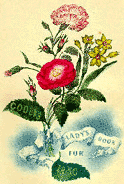Harlem: Mecca of the New Negro

The complete facsimile and transcript versions of the March 1925 Survey Graphic special "Harlem Number," edited by Alain Locke, is presented here. Locke later republished and expanded the contents as the famous New Negro anthology. The effort constituted "the first of several attempts to formulate a political and cultural representation of the New Negro and the Harlem community" of the 1920s.
The journal is divided into three sections: "The Greatest Negro Community in the World," "The Negro Expresses Himself," and "Black and White—Studies in Race Contacts." The site also includes essays by Locke, W.E.B. DuBois, and James Weldon Johnson; poems by Countee Cullen, Anne Spencer, Angelina Grimke, Claude McKay, Jean Toomer, and Langston Hughes; and quotations from reviews of the issue.



